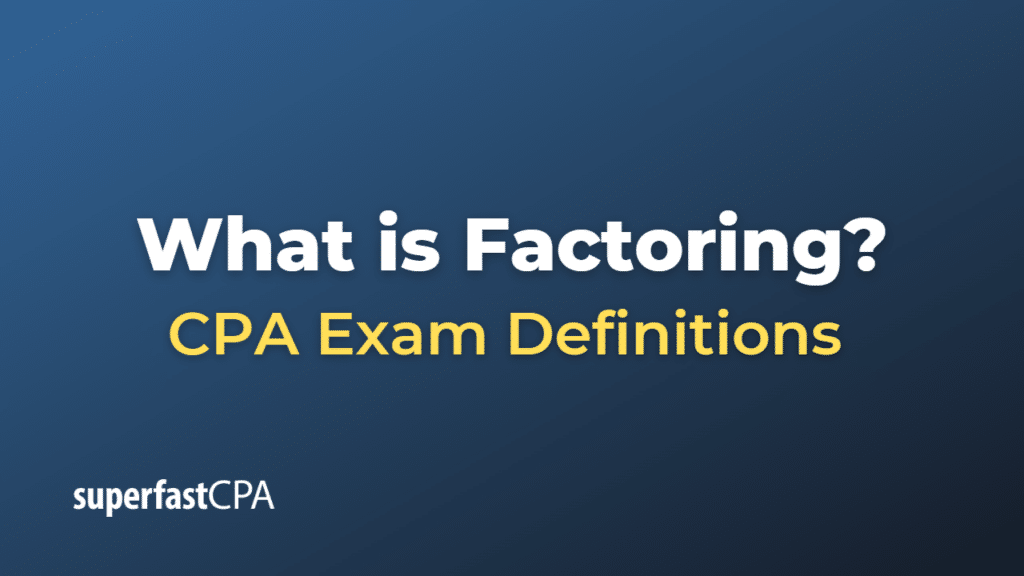Factoring
Factoring is a financial transaction and a type of debtor finance where a business sells its accounts receivable (i.e., invoices) to a third party (called a factor) at a discount. Businesses might use factoring to meet its present and immediate cash needs.
Here’s a simple example of how it works:
- A business provides goods or services to a customer and issues an invoice.
- Instead of waiting for the customer to pay, the business sells the invoice to a factoring company.
- The factoring company pays the business a percentage of the invoice’s value upfront, typically between 70% and 90%.
- The factoring company then collects the full amount of the invoice directly from the customer.
- Once the factoring company has received payment from the customer, it pays the remaining balance of the invoice to the original business, minus a fee for the service.
Factoring can provide a quick influx of cash for businesses that might otherwise have to wait for 30, 60, or even 90 days to receive payment from their customers. However, it comes at the cost of the fees charged by the factoring company.
It’s important to note that factoring differs from a bank loan in key ways. The most important difference is that factoring is not a loan – it doesn’t create a liability on the balance sheet or involve interest charges. Instead, it’s the sale of an asset (the receivable).
Example of Factoring
Suppose a furniture manufacturing company, “FurniCo,” sells $100,000 worth of furniture to a retail store, but the store has 60 days to pay the invoice. FurniCo needs cash more immediately to meet its operational costs (like buying raw materials, paying its employees, etc.), and can’t afford to wait 60 days for payment.
To address this, FurniCo turns to a factoring company, “FastCash Inc.” FurniCo sells its $100,000 invoice to FastCash Inc., which immediately pays FurniCo 80% of the invoice’s value, or $80,000.
FastCash Inc. then takes over the invoice and collects the full $100,000 from the retail store 60 days later. Once it has received the payment, FastCash Inc. pays FurniCo the remaining 20% of the invoice, or $20,000, minus its factoring fee. If FastCash Inc.’s fee is 3% of the invoice value, or $3,000, then FurniCo would receive an additional $17,000.
In the end, FurniCo receives a total of $97,000 for its $100,000 invoice, after paying a $3,000 factoring fee to FastCash Inc. FurniCo has managed to quickly raise capital it needed for its operations, while FastCash Inc. made a $3,000 profit for its services.













